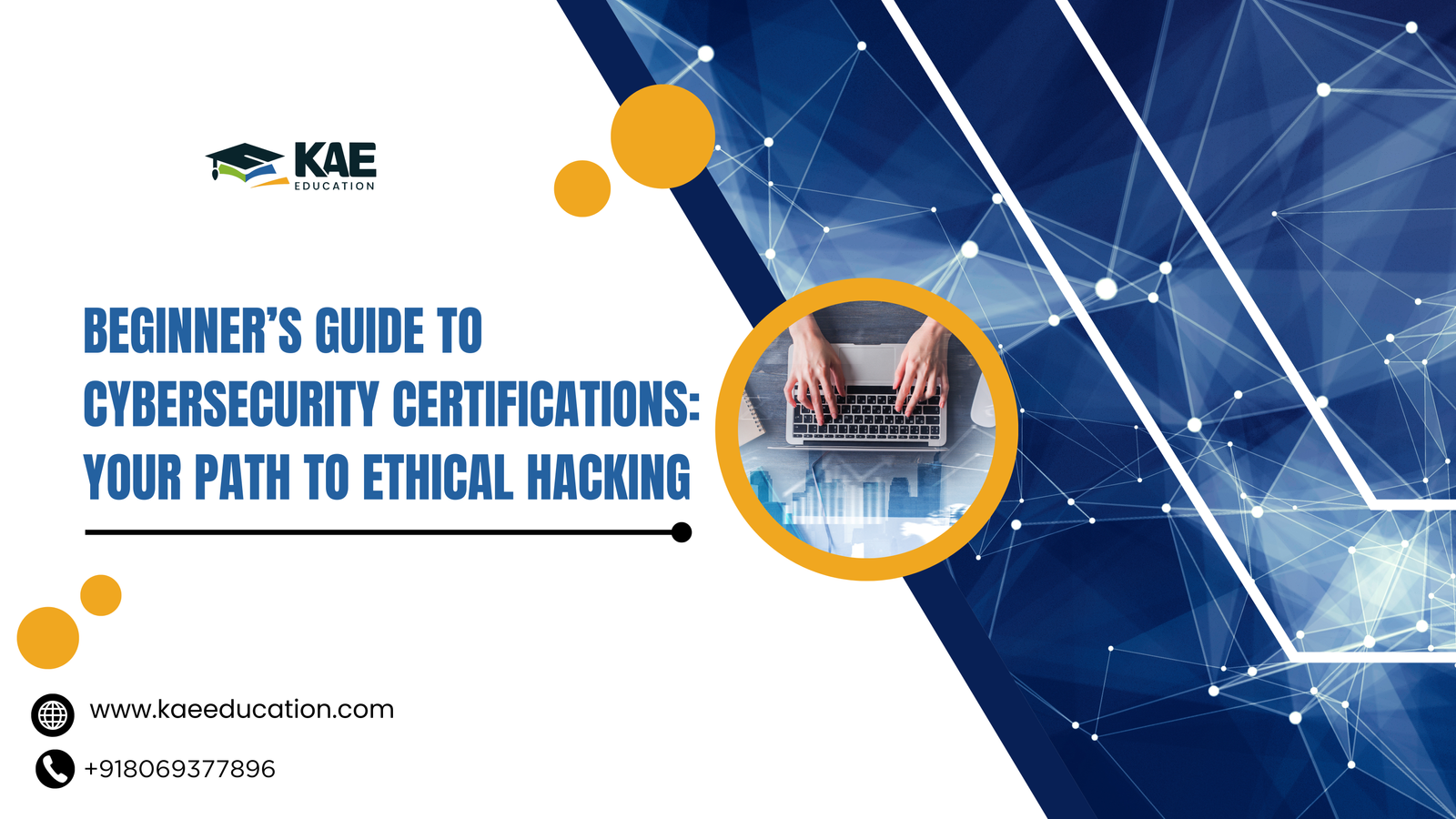Beginner’s Guide to Cybersecurity Certifications: Your Path to Ethical Hacking
In the ever-evolving world of digital technology, Cyber security and Ethical hacking have become critical skills for protecting organizations and individuals from cyber threats. Whether you’re a beginner looking to step into this dynamic field or a professional aiming to enhance your career, Cyber security certifications are your gateway to mastering the art of Ethical hacking. In this beginner’s guide, we’ll explore the essential certifications, their benefits, and how they can shape your path toward a rewarding career.
Why Cyber security and Ethical Hacking Matter?
Cyber security is the practice of protecting systems, networks, and data from Cyberattacks, while Ethical hacking involves testing these systems to find vulnerabilities before malicious hackers can exploit them. The need for cyber security specialists keeps growing as Cyberthreats becoming more complex. Certified professionals, especially those with skills in Ethical hacking, are in high demand as they play a crucial role in safeguarding sensitive data and digital infrastructure.
Top Cyber security and Ethical Hacking Certifications for Beginners
(1) CompTIA Security+
(i) Overview:-
This is an entry-level certification that covers essential Cyber security concepts, such as network security, threats, and risk management.
(ii) Who Should Take It:-
Ideal for those new to cyber security, it provides foundational knowledge required for advanced certifications.
(iii) Focus:-
Network security, compliance, cryptography, and risk management.
(2) Certified Ethical Hacker (CEH)
(i) Overview:-
CEH is one of the most recognized certifications for aspiring ethical hackers. It covers penetration testing and vulnerability detection.
(ii) Who Should Take It:-
Anyone interested in Ethical hacking, penetration testing, or becoming a security analyst.
(iii) Focus:-
Hacking techniques, countermeasures, and the hacker mindset.
(3) Cisco Certified CyberOps Associate
(i) Overview:-
This certification offers knowledge about cybersecurity operations, intrusion detection, and responding to incidents.
(ii) Who Should Take It:- Beginners interested in Cybersecurity operations and monitoring.
(iii) Focus:-
Security monitoring, incident response, and forensics.
(4) Certified Information Systems Security Professional (CISSP)
(i) Overview:-
Though not strictly for beginners, CISSP is an advanced-level certification for professionals aiming for leadership roles.
(ii) Who Should Take It:-
Those with some experience in Cyber security, looking to enhance their skills and move into senior roles.
(iii) Focus:-
Information security, risk management, software development security, and network security.

The Benefits of Cybersecurity Certifications
(1) Career Advancement:-
Certifications like CEH and CISSP demonstrate your commitment to the field and open doors to higher-paying roles.
(2) Global Recognition:-
Cybersecurity certifications are recognized worldwide, providing opportunities to work in a variety of Industries and locations.
(3) Skill Validation:-
Earning a certification validates your skills and knowledge, making you stand out to potential employers.
(4) Increased Job Opportunities:-
The Cyber security field is expanding rapidly, and professionals with certifications are highly sought after.
How to Get Started in Cybersecurity and Ethical Hacking
(1) Choose the Right Certification:-
Identify your career goals and choose a certification that aligns with your interests (e.g., Ethical hacking, network security, or incident response).
(2) Study and Practice:-
Use official study materials, practice tests, and hands-on labs to deepen your understanding of Cyber security principles.
(3) Gain Practical Experience:-
Many certifications require practical knowledge, so try to gain real-world experience through internships, labs, or personal projects.
(4) Stay Updated:-
Cybersecurity is an ever-changing field, so it’s essential to stay updated with the latest trends, technologies, and threats.
Conclusion:-
Embarking on a career in Cybersecurity and Ethical hacking can be both challenging and rewarding. The certifications mentioned in this guide are excellent starting points for beginners looking to break into the field. By earning one or more of these certifications, you’ll not only validate your skills but also position yourself for long-term success in the Cybersecurity Industry. Whether you aim to be an Ethical hacker, network security expert, or security operations specialist, certifications can give you the edge you need.
If you’re ready to begin your journey, consider exploring courses from KAE Education, a leading course provider in Cybersecurity, Ethical hacking, Data science, Machine learning, AI, and Business analytics. KAE Education offers live online training programs that are designed to equip you with the practical skills needed to excel in today’s fast-paced, tech-driven world.
Get certified, get skilled, and secure your place in the future of Cybersecurity!
FAQs About Cybersecurity and Ethical Hacking Certifications
CompTIA Security+ is often recommended for beginners due to its broad coverage of Cybersecurity fundamentals and ease of entry.
Yes! Certifications like CEH (Certified Ethical Hacker) provide the necessary knowledge and skills to become an Ethical hacker without needing a formal degree.
The preparation time varies depending on the certification and your background. For example, CompTIA Security+ might take 2-3 months of study, while CISSP could take 6-12 months.
Absolutely! Many online courses offer hands-on labs and simulations that provide practical experience, essential for certifications like CEH or CISSP.
Yes, most certifications expire after a few years. For example, CEH and CompTIA Security+ need to be renewed every three years by earning continuing education credits.

